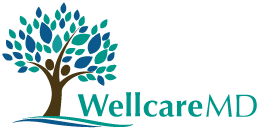.jpg)
By Dr. Samir Qamar, Founder & CEO, MedLion
1. Insurance is not necessary for all health care.
2. Not all health care is expensive.
3. Employers can use Direct Primary Care to lower health care costs.
In times when employers are challenged with ACA compliance, high health care costs and dissatisfied employees, the above statements have a lot of power. Even more important, the meaning of these statements is the essence of Direct Primary Care, America’s newest health care model, and one that is helping employers nationwide navigate traditional challenges.
To effectively strategize a good health care plan, savvy employers should first dissect the American health care behemoth to understand and figure out the needs of employees to offer meaningful benefits. In the United States, we use insurance for all health care needs. This is where the problem begins. Insurance was originally designed for expensive catastrophic events, such as heart attacks, cancers and strokes. In fact, insurance is still used for catastrophes in all other industries, such as automobile, home and life insurance. Health care is the only field where insurance is not only used for rare events, but also common and frequent events. However, insurance is not necessary for all health care.
Today, we use insurance for everything because visits to doctors for even minor issues can cost upwards of $100. When health insurance claims are filed routinely, health insurance premiums rise. Therefore, the only logical way to decrease insurance premiums is to reduce the frequency of claims filed. To reduce frequency of claims, a large segment of medical care has to be affordable to render insurance unnecessary. Thankfully, not all health care is expensive. This is where Direct Primary Care makes its grand entrance.
Health care can be divided into those services which are used often, and those which are used rarely. Primary care, with its routine physicals, acute care, chronic condition management, refills and lab orders fall into services that are used often. Direct Primary Care takes this majority of health care and caps the cost into an affordable, manageable, flat monthly fee, typically less than $90 per month. As a result, insurance use (and cost) is minimized to rare occurrences. Employers can use Direct Primary Care to lower health care costs.
How do employers make Direct Primary Care work for them?
Simply put, Direct Primary Care, plus an appropriate supplemental insurance plan, can save employers up to 40 percent on health care costs compared to the traditional insurance alternatives, yet stay in compliance with Affordable Care Act mandates. For self-insured companies, Direct Primary Care can control downstream catastrophic costs by providing high-access, quality care upstream and can be inserted strategically as part of the total plan offering.
There are numerous other advantages Direct Primary Care provides for employers: telemedicine to keep employees at work, reduction of unnecessary worker comp claims, active management of employee health conditions and so much more.
In today’s new and unprecedented health care climate, it’s vital to know the latest health care models that could keep an employer’s costs down while increasing quality and coverage. Direct Primary Care is such a model, and smart employers are taking notice as they design employee benefits.
Qamar. "Three Reasons Why Employers Should Care about Direct Primary Care." Medlion Believers Blog. Web. April 2016.
